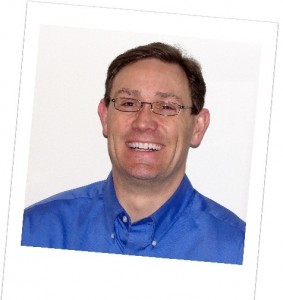Youth at Risk and Transform Coaching
In this weeks guest post Emily Finney and Ellie Garraway share observations about how a company and charity who uses coaching has developed over the past 20 years.
Youth at Risk and Transform Coaching
by Emily Finney and Ellie Garraway
Here at Youth at Risk we have been delivering high impact personal development programmes for young people for 20 years. Our courses have a track record of changing attitudes and negative beliefs of disaffected and disengaged young people but perhaps more surprisingly we have developed a following in the world of adult personal development and coaching too.
All of our work with young people involves training adults (professionals, parents, volunteers) and we have found over the years that these adults stick around – they want more of the Youth at Risk methodology because it is impacting the way they live their lives, their sense of connection to others and their ability to make a difference.
It was really our adult champions (you know those people who are always in touch to find out when their next chance to volunteer or attend a training might come along) who were the driving force behind creating Transform Coaching.
Transform Coaching goes back to the origins of the “Youth at Risk” methodology – powerful performance coaching delivered on to a foundation of transformational personal development – and couples it with an accreditation from Edinburgh University. It’s all about sorting out who you are and your baggage first before you even begin to think about learning how to coach another. It is a high impact, challenging course – and as with the work of the charity – delivers fairly extraordinary results as Kate from Levi’s can testify
“I had heard previously how amazing the transformational coaching was but nothing could prepare me for the huge impact it had. You really do walk away feeling transformed. You really do learn about yourself and how you really do limit yourself through your beliefs and conversations you have with yourself. At times the training was challenging and at times I was completely out of my comfort zone but I overcame this and really put 100% into the training. I walked away feeling profound, energetic and with a new appreciation of myself.”
Kate – Levi’s UK
Our collective approach to transformation is based on a simple but shattering truth. In this intensively competitive globalised world, learning new skills and techniques alone are no longer enough. You must see the world in a new way and reinvent yourself. You must transform. We’ll be the catalyst. We’ll challenge you to recognise new opportunities that were not available or visible to you before.
We have witnessed some amazing transformations in people who have completed the course and participants have told us they have improved their decision-making skills, effective management of others from a coaching perspective, highly improved communication skills and increased levels of motivation. One employer told us that their staff member looked different after the course!
“This is an extraordinary course in so many ways and I know that the awareness and insights I have gained will continue to grow long after I have left and will impact on every aspect of my life and relationships.”
Our courses have certificated accreditation in association with The University of Edinburgh Business School. This is made possible through our affiliation with Peter Hill’s Coaching for More consultancy, a well-respected organisation committed to the learning and development of coaches and mentors. www.cfmi.co.uk – we enjoy working with Peter Hill a lot and he has been great in helping to bring Transform Coaching to adults.
About the author
Written by Emily Finney – Transform Coaching Manager – New to Youth at Risk with the help of Ellie Garraway.
About Transform coaching
Give us 4 days and we’ll transform the rest of your life.
To find out more ; www.transformcoaching.org / Facebook // Twitter // LinkedIn
About co-writer Ellie Garraway
Ellie’s role in Youth at Risk is as Operations Manager responsible for all Education programmes and has been instrumental in the rapid growth of this critical area of work. She is also a key trainer on Coaching for Success programmes, delivering intensive personal development training courses to school staff, year 10/11 pupils and the volunteer performance coaches.
Prior to working for Youth at Risk, Ellie worked as Training and Development Manager for a large fundraising organisation, designing and delivering all of their in-house training. She has also worked as a freelance trainer, designing and running courses for a variety of client groups including: MBA students, counsellors, actors and all manner of business people. Other work includes – company director and co-founder of a national touring theatre company, fitness instructor and personal trainer. Ellie has also represented the South of England as a long-distance runner and continues to compete at a high level.
Ellie holds a BA (Hons) in English Lit. & Theatre Studies (University of Leeds) and a Postgraduate Diploma in Acting (Welsh College of Music and Drama).
[pinit]
Source: coachingconfidence.co.uk via Coaching on Pinterest

 As a speaker, author, and team-building coach, Sean Glaze entertains and influences groups with a unique blend of dynamic content, interactive activities, and practical action steps. His team-building website,
As a speaker, author, and team-building coach, Sean Glaze entertains and influences groups with a unique blend of dynamic content, interactive activities, and practical action steps. His team-building website,  Jen Waller is on a mission to support, nurture and encourage coaching skills and talents from non-coach to coach and beyond.
Jen Waller is on a mission to support, nurture and encourage coaching skills and talents from non-coach to coach and beyond.